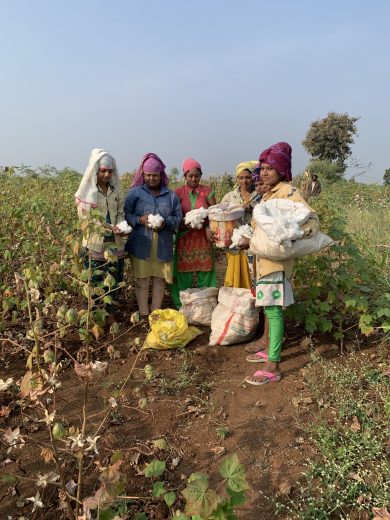More than 40 young Indian women now equipped with new skills and regular income
Scotmid Co-operative has helped more than forty young women in India develop new skills and secure a regular income through a partnership with co-ops across the UK.
When the Delta variant hit India with devastating effect last year, Scotmid and a group of co-operative retailers collectively raised over £100,000 to support the crisis response, initially providing essential basic supplies, health kits and education.
The support evolved to helping young female workers to grow a sustainable future out of the pandemic through a two-year incubator programme to help them develop skills in journalism, graphic design, photography, new media, research methodology and report writing.
Pranaliben, a 20-year-old woman from Ahmedabad City, is one of the women who will benefit from this support. After completing her graduate studies from a local university, Pranaliben struggled to find sustained employment which was made worse by the pandemic. Through her mother, a member of the Self Employed Women’s Association (SEWA), she got in touch with SEWA Cooperative Federation and learnt about cooperatives. Now she is eager to work together with young women like herself and lead her own cooperative.
Co-operatives UK worked with the Co-operative College and Co-op News to co-ordinate the appeal, partnering with SEWA in India who are delivering the programme.
“This worthwhile partnership demonstrates the strength of co-operation. We’re proud to be a part of this initiative to grant young women in India, like Pranaliben, the necessary skills and opportunities needed to secure a regular income.” Harry Cairney, Scotmid President.
During the initial crisis period, £70,000 of the donation from Scotmid and other UK co-ops was used to provide emergency support. This included the distribution of 4,000 household health kits, with masks, soap and immune boosters distributed across eight states of India. Lifesaving information about the symptoms and spread of Covid was also provided to families in rural and low-income urban areas – to dispel myths and provide accurate health information.
The remaining £30,000 is now being used to deliver a two-year programme supporting the development of two young women’s incubator co-operatives. A grassroots media co-operative will support young women to build capacity in media, journalism, graphic design, photography and new media, whilst a second grassroots co-operative will focus on research, conducting surveys, focus group discussion and report writing.
Watch: https://www.youtube.com/watch?v=KUXfQ3t5BSo

